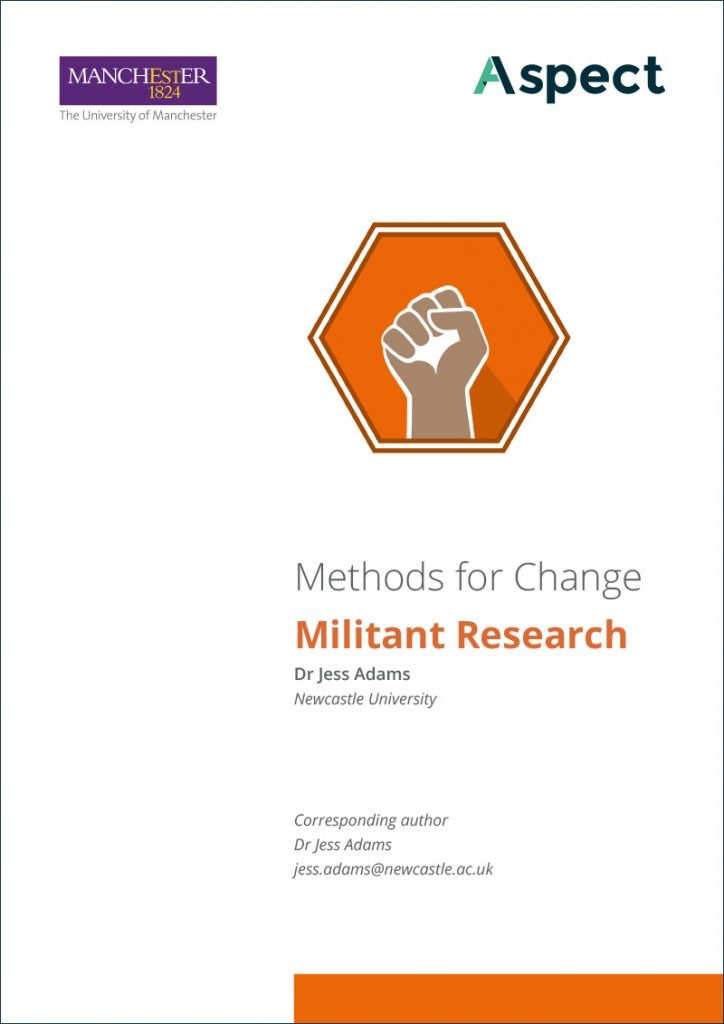Militant Research prioritises political struggle over the academic pursuit of knowledge. It is “a committed and intense process of internal reflection from within particular struggle(s) that seeks to map out and discuss underlying antagonisms while pushing the movement forward” (Halvorsen, 2015).
The methodology works on the assumption that change can happen through people working together. Practically what this means is that the researcher must become an active participant in a political movement, while still doing research – it essentially means devoting lots of time to working as an activist or as an organiser. This form of research follows a ‘learning-through-action approach’. In other words, it acknowledges that we learn a huge amount by just doing whatever it is we are seeking to understand.
Most Militant Researchers are anti-capitalist at a minimum. The approach argues that capitalism and the various interlocking systems of oppression that accompany capitalism (including imperialism, colonialism, racism, and patriarchy) have created significant harm. In response, Militant Research seeks to experiment with and build alternatives in the present day.
The methodology also challenges academic structures and ways of knowing that are built on extractive research approaches and methods. It seeks different ways to generate knowledge, with a particular focus on processes and methods, and it offers a blurring of the boundaries between activism/organising and research, between researcher and researched, and between theory and practice. Because of its explicitly political nature, this work can be quite precarious and fragile. It exists in opposition to some of the neoliberal educational structures that researchers and practitioners often need to operate within, and this makes some aspects of it quite challenging.





